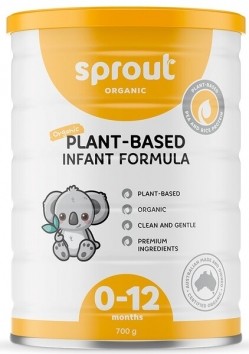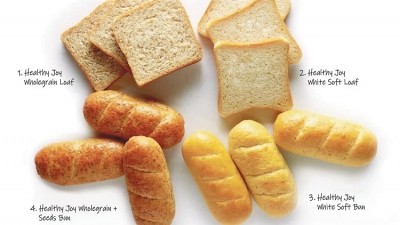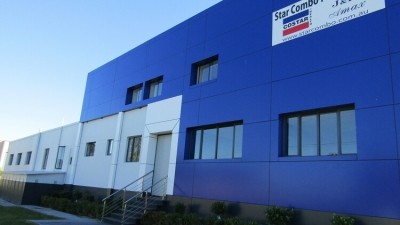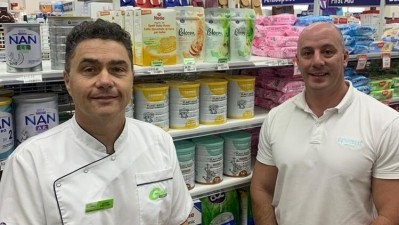Supply chains interrupted: Customs delays, shipping woes continue to plague APAC nutra and food businesses

However, entrepreneurs remain optimistic that they can tap new channels and strategies to maintain sales growth.
One such figure is Selasi Berdie, founder of the Australian company behind the plant-based infant formula and products Sprout Organic.
Recently, the firm announced its partnership with a New Zealand distribution company, VSL Health, to expand its footprint into 200 stores across the country. Before this, Sprout also entered the Australian pharmacy retailer Wholelife and outlined its global expansion drive.
“We’ve been blown away by the demand via our e-commerce channel from New Zealand, yet customs delays and shipping costs were becoming unsustainable for our customers, so this was a natural first move for us,” said Berdie.
A ‘hat trick’ jump in shipping costs
Despite being geographically near New Zealand, he said delays could occur across international borders and usually are beyond the firm’s control.
For instance, customs clearance can delay, especially when a product is assumed to be dairy or animal-derived. He said such delays could encroach into weeks from the estimated delivery date to customers. Domestically, delivering door-to-door in New Zealand can also take up to seven days.
Besides that, his firm has faced a shipping cost increase of over 200% since its inception in 2020. However, he has taken a stance to hold their freight pricing and maintain price points for the year.
Additionally, Sprout Organic has also secured its ingredient supply chain for the next two years despite the rising costs of these materials.
“It hasn't so much been complaints, but rather desperation from parents who need formula in the next day or two as they have found out their infant has allergies or want them on a 100% plant-based product, and we are their only option.
“Families are getting hit with a whole lot of other rising living expenses. It has been tough (holding freight cost), but we owe it to our loyal customers that have supported us since our inception.
“In my opinion, logistics will remain challenging over the next six to 12 months. I don’t feel the era of unpredictability is going to go away. We need to implement a good transport and warehouse management system to provide our teams with the data they need to identify inefficiencies. Explore shipping consolidation opportunities, and if you can, centralise procurement,” said Berdie.
Practising prudence
The high shipping cost was also highlighted by Chief Business Officer of Malaysia’s Nova Laboratories, Nicholas Cheong. Nova is a health and nutrition company with over 90 SKUs specialising in supplements, functional foods and medical nutrition.
According to Cheong, the shipping costs are quite high and unavoidable, especially in the last two months. Nova has to import around 70% of the ingredients and packaging for the supplements manufactured. It imports from several countries, like India, US and China.
However, he said customs clearance should not be an issue with the right papers and permits, and delays must be anticipated at such entry points.
As a solution, he had to throw the cost, alongside the impact of inflation, back to consumers by increasing the supplement price points by about 15%.
The second solution was to stock higher. Previously, Nova only stocked for three months. Today, it is stocking for six to 18 months and adapting its warehouse to create better conditions for inventory.
“With the world re-opening, I think things will be smoother. We will be storing more products in the third building of our plant, which is expected to complete construction in Q4.
“The projection is very positive for us. Yes, you must pay good money for logistics. If not, you won’t get good service.
“Now I’m thinking about how I can be prudent in other aspects of the business. We cannot escape from the logistics cost, so we share the burden with customers. This phase is a whole learning curve for firms all over APAC,” said Cheong.
The lockdown countdown
Circumstances might be even trickier for CEO Astrid Prajogo, who leads the Shanghai plant-based firm Haofood.
Haofood manufactures plant-based chicken using peanuts processed with proprietary technology named “Innotein”. The technology can create a textured plant-based protein resembling ‘fried chicken’.
The firm has more than 50 brands under its portfolio and is available at more than 250 locations across China. It has a co-manufacturing plant in Hefei, Anhui (eastern China), with an output of 15 tonnes daily, roughly translating to 450 tonnes monthly or over 5,000 tonnes annually.
According to various news sources, Shanghai has again tightened COVID-19 restrictions on 9 May. Its residents have endured six weeks in lockdown.
The Chinese yuan has even slipped 4% against the USD this month – possibly its biggest drop since China unified exchange rates in 1994.
Speaking online, Astrid said her company faces “a very steep price increase” for land logistics due to the limited movement entering and exiting Shanghai. She also said inter-provincial logistics prices have been increasing too.
“Business is not easy as usual. It is harder to find logistics companies. Their availabilities and affordability are difficult to attain,” she said.
Hence, she has procured two warehouses outside Shanghai to bolster Haofood’s distribution: one warehouse is in Zhejiang (south of Shanghai, also eastern China) and another in Anhui (west of Shanghai, eastern China).
Despite the extra cost incurred, she believed it was necessary and reasonable in her current circumstances.
“Shanghai is a little part of China. The rest of the areas are operating as per normal. Our warehouse used to be in Shanghai, but we are willing to spend to serve other customers in China,” said Astrid, who also has to deal with production delays due to domestic shipping issues.
Ending the video call with a smile, Astrid reassured that things were getting better and gradually improving in Shanghai. What more, there are different options and solutions.
“We need to think out of the box. Do things in extraordinary ways. ‘Jiayou (Stay strong in Mandarin)’! I don’t know what will happen next, but knowing China, this won’t be long. China works very fast, and this will change,” she said.





















